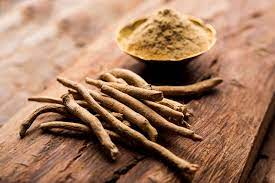
Ashwagandha, What’s all the Buzz About?
Brad King, MS, MFS
In the buzzing hive of our modern existence, the thunderous hum of stress is often a dominant sound. Underlying our perception of reality, it ripples into physiological distress, hijacking the harmony of our bodies and minds. Indeed, the body, much like a finely tuned orchestra, interprets stress as conflict, leading to the production of powerful, but often problematic hormones called glucocorticoids, the most powerful of which is, cortisol[1].
Imagine this; you are walking home late at night and decide to go down an alleyway as it’s the fastest route. Suddenly, a guy jumps out from behind a dumpster, swinging a hunting knife and starts chasing you. Even though you eventually make it to safety, your body goes through some interesting biochemical checks and balances. Like the above scenario, when you are feeling stress, your system responds as if it’s under attack, releasing loads of cortisol to help you free up your energy reserves so you can either fight or run (Fight or Flight). When you are constantly worried about things – whether real or perceived –your body responds by creating a constant tide of this powerful hormone (cortisol)[2].
In controlled doses, cortisol is beneficial, mobilizing energy reserves to handle immediate threats. But when exposure is prolonged, it’s akin to an orchestra playing the same grating note over and over – creating an environment of discord and eventual burnout[3].
Adaptogens
Enter adaptogens, the maestros of harmony in the symphony of our body. These plants and herbs, gifted by Mother Nature herself, help modulate our responses to stress, gently guiding the body back towards balance and calmness[4].
Unlike stimulants such as caffeine that energize by depleting our reserves (borrowing energy from our own tissues like muscle), adaptogens offer sustained vitality without the exhausting crash. And unlike many pharmaceuticals riddled with side effects, they provide holistic support without the burden of unwanted complications[5].
Topping the adaptogen charts is an incredible plant called Ashwagandha, often hailed as the king of this regal group. Native to the Indian subcontinent, this plant has been the cornerstone of Ayurvedic medicine for centuries[6]. A modern resurgence of interest has led to an explosion of research around its potent anti-stress properties, with evidence suggesting its effectiveness in mitigating anxiety, reducing excess cortisol and improving cognitive function[7].
Not all Created Equal
However, a word of caution - not all Ashwagandha supplements are born equal. Their efficacy hinges upon the presence of active substances, namely withanolides. Many commercially available supplements contain primarily root extracts, offering no more than 5% of these compounds responsible for Ashwagandha’s glowing reviews[8].
In contrast, a research-proven form of Ashwagandha called Sensoril® is designed around the principles of nature, and nature always works best in synergy. Sensoril® Ashwagandha is unique, as it is extracted from the whole plant – root and leaf, at it boasts an impressive 10% concentration of active withanolides[9], making it double the strength of most other forms. Much like a symphony reaching its crescendo, the synergy between different parts of the plant elevates its restorative properties, creating a wholesome adaptogenic experience.
Ashwagandha’s Best Friends
Yet, the potential of Ashwagandha can be taken to the next level by complementing it with two other adaptogens; Panax Ginseng, and Cordyceps mushroom extracts, as these natural wonders help supercharge its effects[10].
If you do decide to use Panax Ginseng with Ashwagandha, make sure it contains 7% active ginsenosides, as most ginseng supplements only contain 4% or less. Also, make sure any mushroom extract is organic, in order to ensure there are no pesticide residues in the finished product. As the rule goes, the sum is always more powerful than the individual parts – a symphony always outshines a solo.
Dosages
According to studies, the recommended dosage for Ashwagandha is between 125-250 mg/day taken with or without food. Once again, it is best to use a research-proven form of Ashwagandha such as Sensoril®, as there is painstaking quality control that is adhered to, as well as product consistency from batch to batch.
So, what's the buzz about Ashwagandha? It's the maestro that can conduct your body's symphony back to harmony, mitigating the discordant notes of stress. With the right formulation and synergistic companions, it presents a natural, sustainable way to restore balance and cultivate resilience in our increasingly harsh world.



